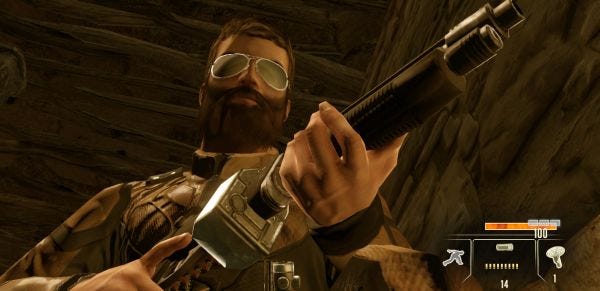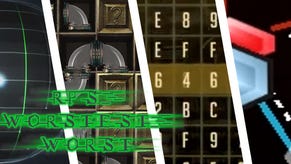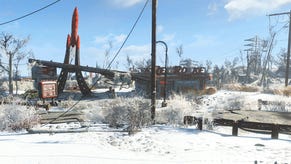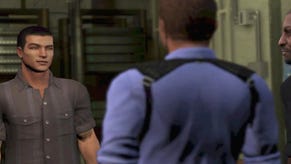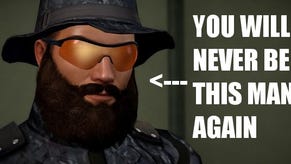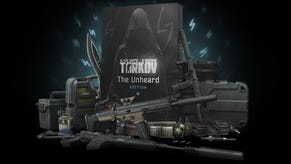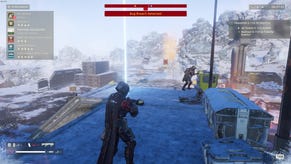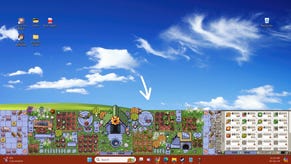Spying On Spies: Alpha Protocol Interview
Alpha Protocol is so close that if you go outside and look to the horizon you'll just see the tip of its hat. In a strange reversal of fortunes it reaches Europe on the 30th May, not making it to its native US until 1st June. We grabbed this chance to talk with producer Matt Hickman about the development, balancing role-playing and combat, and moral ambiguity.
RPS: When you began development of a brand new IP, what was the process for deciding the direction you’d like to head in? Did the Alpha Protocol idea come fully formed, or was it more of a process, a series of decisions that perhaps deliberately took you in directions you’d not headed before?
Matt Hickman: I'm not sure any product ever truly comes out fully formed the way one imagines it, but that's an intrinsic part of the development process. As a new IP on an engine that we hadn't worked on before, there were a lot of things in Alpha Protocol that were firsts for us as a studio. Our initial vision of a modern-day spy RPG is intact, though it's a given that things are going to change and evolve during the development cycle. There were obviously cuts and additions as we moved through development and we branched in new directions when it came to combat and dialogue delivery. When everything is in pieces at the beginning it's hard to be sure it's all going to come together the way you've imagined so you just take the path that feels right and keep forging ahead even if it's new ground.
RPS: What’s surprised you the most about Alpha Protocol as you've developed it? Is there a feature, an aspect, that you never had in mind that's come to stand out?
MH: We've been really pleased with the way that Alpha Protocol's conversation system turned out. By rooting Alpha Protocol's dialogue system in a system of simple responses and giving players a limited time to respond, we've made conversations within the game tense but fun. Because decisions made within conversations often have important effects, it makes the role-playing going on feel urgent and exciting. It's honestly surprising how well it works to keep the pacing and excitement up.
Beyond that, the combat system has gone through a lot of changes over the years and we settled in a really great spot that blends RPG stats and pure shooter. When we got through with balancing and tweaking critical hits and the like, we stood back and we're really proud of where it ended up.
RPS: How have you found the process of combining real-time combat with an RPG format?
MH: Finding the right balance between action and RPG was a constant throughout the development process. As a new IP we built the rules of the game from the ground up, and wanted to combine the two aspects in a way that felt right for the game. We could have designed an RPG in which every move you made was determined by a secret dice dice-roll, but nobody wants to line up a perfect headshot and have it ruined by a random behind-the-scenes calculation. It's been a pretty organic process, finding ways to give characters benefits for investing in certain skills, while not penalizing players in a way that makes them feel like the action in the game is unfair completely random. In the end it's been a fun creative process finding what "feels" right as gamers as well as game designers.
RPS: There appears to be a movement away the binary "good or bad" nature of RPG choices in the last couple of years. Both you and BioWare are looking to create more nuanced, more ambiguous morality. What has driven this change, and what do you think is both gained and lost by moving in this direction?
MH: We looked at the story we wanted to tell and frankly it makes the character and the plot easier to identify with and his world easier to recognize if his decisions and the consequences of those decisions aren't all yes or no, good or bad. Especially considering the setting of Alpha Protocol, it just doesn't make sense to have rigid choices, or meters that gauge Thorton's alignment between good and evil. Sure, Alpha Protocol is based in the spy genre, and has certain trappings because of that, but because the game is based basically in the modern day, we wanted to reflect the ambiguity real world decisions. There are very rarely clear-cut good and bad decisions in real life, and as a modern day RPG, we wanted to reflect that.
RPS: You've said that it's possible to get through the game without killing anyone. Beyond the technical aspects of creating the game such that this can work, what drove the desire to offer this? Is it simply a choice of style - how you want your spy to work - or is there a philosophy behind creating a game with such options?
MH: How the player decides to deal with opposing characters is really an extension of the role playing experience. Just as there are often not any clear cut good or bad decisions in other aspects of the game, how players should deal with opponents can also be ambiguous. In certain areas of the game, your opponents may be anything from US agents to security guards to terrorists. We set a precedent very early on that you're never really sure who your enemies are and who are your friends, so it makes sense to be careful who you kill. With this in mind we figured there are going to be players out there that don't want to kill anyone just in case. It's also just a fun challenge for players to test themselves with.
RPS: We've heard a lot that decisions or conversations early on can affect experiences later in the game. Has it been a challenge to balance this, to ensure the player doesn't feel like they're living with regrets that might spoil their fun, but still having to face the consequences of their actions?
One of the goals of implementing the real-time dialogue system was to make players react instinctually to choices, as they would have to were they actually in the situation themselves. Many of these decisions are minor, and may only marginally effect how NPC's react to you, but yes, some of the decisions do have a larger impact on the game and may even leave some people regretting their decisions. I'd encourage people to make the best decision they can at the time, and live with the consequences, which will force players carefully consider the ramifications of their actions. So to a degree we want you to ask yourself "what if?" but by that same token you can almost always change things. In the end you may just have to play through again, it is just a game after all.
